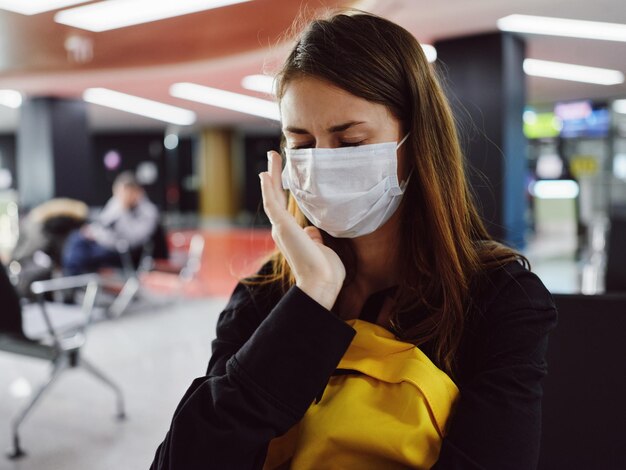Understanding How Pneumonia Spreads: Your Essential Guide
Pneumonia is a common respiratory infection that poses a significant health risk globally. Understanding how it spreads and taking preventive measures can significantly reduce its impact on your health. Below, we'll explore the various ways pneumonia can spread, practical prevention tips, and related subtopics that provide valuable insights into managing and understanding this condition more effectively.
What is Pneumonia?
Pneumonia is an infection that inflames the air sacs in one or both lungs. These air sacs may fill with fluid or pus, causing symptoms such as cough, fever, chills, and difficulty breathing. Pneumonia can affect individuals of all ages but poses a higher risk to infants, older adults, and people with weakened immune systems.
Causes of Pneumonia
Pneumonia can be caused by a variety of organisms, including:
- Bacteria: Most commonly, Streptococcus pneumoniae.
- Viruses: Such as influenza, respiratory syncytial virus (RSV), and the viruses that cause colds.
- Fungi: Common in people with chronic health problems or weakened immune systems.
- Mycoplasma: Atypical type of bacteria that can cause milder pneumonia symptoms.
How Does Pneumonia Spread?
Understanding the modes of transmission is crucial in preventing the spread of pneumonia.
Person-to-Person Contact
Pneumonia often spreads through direct contact with respiratory droplets when an infected person coughs or sneezes. These droplets can be inhaled by someone nearby, leading to infection.
Airborne Transmission
Some forms of pneumonia, particularly viral ones, can spread via tiny droplets in the air, which can be inhaled even if you're not in close contact with an infected person.
Contaminated Surfaces
The germs that cause pneumonia can also survive on surfaces for a short period. Touching these contaminated surfaces and then touching your face—especially your mouth, nose, or eyes—can lead to infection.
Aspiration
Pneumonia can develop if food, drink, vomit, or saliva is inhaled into your lungs accidentally. This is more common in people with swallowing difficulties or impaired consciousness.
Who is at Risk?
Some groups of people are at increased risk of developing pneumonia or severe complications:
- Infants and young children.
- Adults aged 65 and older.
- People with chronic conditions like asthma, diabetes, or heart disease.
- Individuals with weakened immune systems due to conditions such as HIV/AIDs or use of immunosuppressive medications.
- Smokers and those with a history of significant alcohol use.
Practical Steps to Prevent Pneumonia
Preventive measures can significantly reduce the risk of contracting or spreading pneumonia.
Vaccination
Immunization is one of the most effective ways to prevent bacterial pneumonia, especially Streptococcus pneumoniae. The pneumococcal vaccine is recommended for young children, older adults, and people with certain health conditions. The flu vaccine can also help prevent respiratory infections that might lead to pneumonia.
Hygiene Practices
- Wash your hands regularly with soap and water, especially after coughing, sneezing, or nose blowing.
- Use hand sanitizer when soap and water aren't available.
- Avoid touching your face with unwashed hands.
Avoiding Exposure
- Stay away from people who are sick, especially if you are at high risk.
- Wear a mask in crowded or enclosed spaces to reduce airborne transmission risks.
Healthy Lifestyle
- Quit smoking and avoid exposure to secondhand smoke.
- Limit alcohol consumption, as excessive drinking can weaken your immune defense.
- Eat a balanced diet, exercise regularly, and get adequate sleep to boost your immune system.
Respiratory Etiquette
- Cover your mouth and nose with a tissue or your elbow when coughing or sneezing.
- Dispose of tissues immediately and clean your hands afterwards.
Complications and When to See a Doctor
Pneumonia can lead to severe health complications, particularly in vulnerable populations. If you or someone you know experiences worsening symptoms such as severe difficulty breathing, high fever, chest pain, or persistent cough, you must seek medical attention promptly.
Related Health Concerns
Differentiating Pneumonia from Other Respiratory Illnesses
It's essential to understand the differences between pneumonia and other respiratory infections like bronchitis or the common cold to ensure proper management and treatment.
Post-Infection Care
For those recovering from pneumonia, following a physician's guidance on post-infection care is vital to avoid relapse or complications. This includes completing any prescribed medications and gradually resuming activities.
Long-term Lung Health
Maintaining lung health involves regular check-ups, especially if you have a history of respiratory conditions. Engage in exercises that enhance lung function and avoid pollutants.
Current Global Challenges
The COVID-19 pandemic has brought attention to the impact viral pneumonias can have. Understanding the overlap of symptoms and prevention strategies is crucial in navigating healthcare decisions during such outbreaks.
Closing Insight
Understanding how pneumonia spreads and the preventive measures you can take is crucial for maintaining overall health. By familiarizing yourself with at-risk populations, common transmission methods, and effective prevention strategies, you are better equipped to protect yourself and those around you from this potentially severe illness.
Quick Takeaways 📝
- Pneumonia is an infection causing inflammation in the lungs.
- Causes include bacteria, viruses, fungi, and aspiration.
- Transmission occurs through droplet contact, airborne particles, and surface contamination.
- At higher risk: infants, elderly, chronically ill individuals, and smokers.
- Preventive measures include vaccinations, hygiene, avoiding exposure, and a healthy lifestyle.
- Seek medical help if experiencing severe symptoms like high fever and difficulty breathing.
By focusing on preventive care and staying informed about the risks and transmission modes of pneumonia, individuals can take proactive steps to safeguard their health and contribute to a healthier community.

Related Articles
- a Typical Pneumonia
- Can a Cold Turn Into Pneumonia
- Can a Sinus Infection Turn Into Pneumonia
- Can Amoxicillin Cure Pneumonia
- Can Amoxicillin Treat Pneumonia
- Can Baby Oil Cause Pneumonia
- Can Bronchitis Turn Into Pneumonia
- Can Covid Turn Into Pneumonia
- Can Doxycycline Treat Pneumonia
- Can Flu Turn Into Pneumonia
